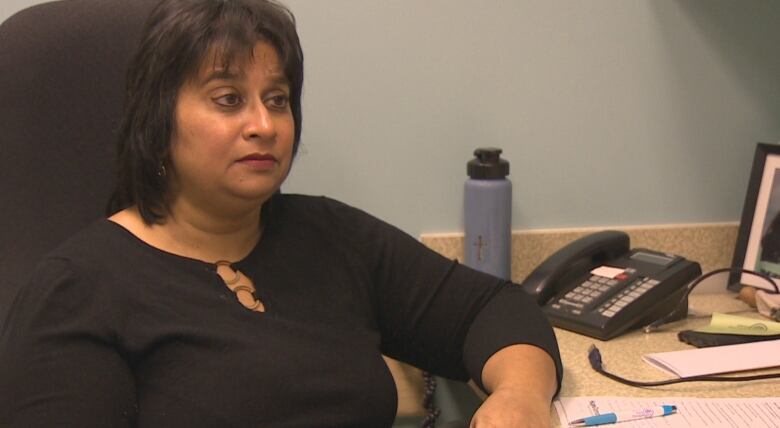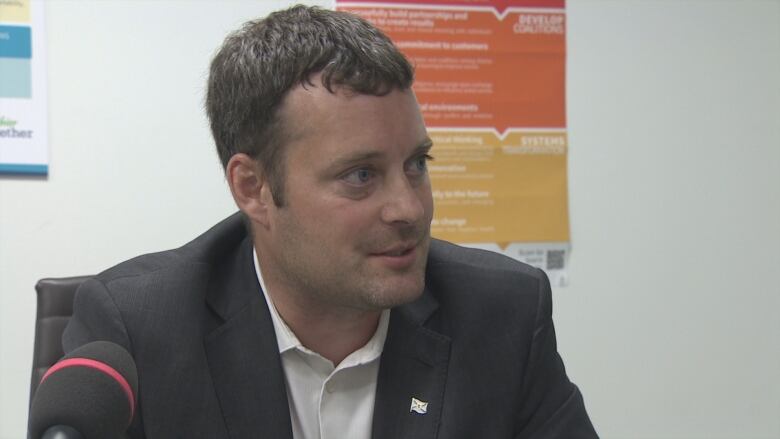Poor communication will stifle progress on health care
Doctors feel like an afterthought as new policies and changes come to the system

When auditor general Michael Pickup released a report late last year criticizing the efforts of the Nova Scotia Health Authority and Health Department to communicate the plan to address the province's doctor shortage, he was faced with political pushback from Premier Stephen McNeil and some Liberal MLAs.
But for just about everyone else, the report was hardly a revelation.
During the research for CBC Nova Scotia's series The Search, if one thing becameclear in talking with people who have had success improving the health-care system for theircommunities, it's howcrucial good communication is to the effort.
Doctors aren't feeling included
And it's equally clear how much work we seem to have ahead of us here.
Much of that centres around doctors: the ability to get them here,keep them hereand make them feel like they're involved in the process to overhaul the health system.
Problem is, right now many of them feel like they're an afterthought at best.
Dr. Natasha Deshwal says she and many of her colleagues have ideas for how to help, but they find it a struggle to be heard or even consulted as major changes are introduced to the system.

"None of the conversations and none of the changes that happen in health care should ever be done without having at least a minimum of one physician involved probably more," said Deshwal, a family doctor who runs a collaborative care practice in Bedford.
Situations for doctors vary depending on if they work in an urban or rural area, how they're paid and their style of practice. For that reason, said Deshwal, you need multiple voices.
"You can't just take a physician and say, 'OK, there's my token representative.'"
Co-operative approach produces results
As Health Minister Randy Delorey will rightly tell you, it's not all doom and gloom; there have been successes under the new provincial health authority, including a revamped orthopedic surgery program that allows people to travel to any part of the province for surgery if it means they can get it done sooner.
That effort has increased the number of surgeries than can be performed and maximizes operating room use. But it was also spawned by a working group made up predominantly of doctors who developed the idea. It works, it helps the system and it makes Deshwal's point.

Deloreyis certainly aware of theconcerns from doctors and also appears prepared to try to address some of them.
Asked about doctors not having representationon the board of the Nova Scotia Health Authority, something that's become a recurring complaint, Delorey suggested he'slooking into ways to make sure people's voices are heard at the highest levels.
"Those conversations are ongoing about what is the appropriate mechanism or way to help facilitate having those voices heard appropriately."
Communications problems also extend to doctors in other parts of the country who want to come here to work, only to find more roadblocks than efforts at accommodation. Based on what we've heard from dozens of doctors,the province's default setting seems to be on "No,"rather than, "How can we find a way to make this work?"
Communication flaws hamper recruitment
In a province that's in no position to be turning away any doctors, Deshwal said it's time for the health authority and government to look at being more flexible.
"Just because we want to have a specialist, perhaps, in Point Q, if that specialist wants to come back and wants to go to Point Y I think we should figure how we're going to make that work for us versus saying 'No, you can't come.'"
Communication shortcomings were also evident as we explored recruiting efforts, a point emphasized by the fact that successful recruiters across the country tookour phone calls and welcomedus into their communities to answer questions while it took weeks to get anyone from Nova Scotia's provincial recruitment team to even return a call.
These examples are but a few.
Solutions are possible and people have ideas.That doesn't mean much, though, if the various parties involved in the health-care system aren't talking to each other and perhaps even more important listening to each other.
Like a group of kids standing along the walls of a gym at their first school dance, no one seems to want to be the first onto the dance floor, trying to broker an open,honest andnuanced conversation about how to foster improvements.
Working on this series has shown us that all of those groups are committed to improving the system and want to see positive change, but it's not going to happen to the degree the province needs unless they start doing a better job communicating with each other and the public.












_(720p).jpg)


 OFFICIAL HD MUSIC VIDEO.jpg)
.jpg)



























































































